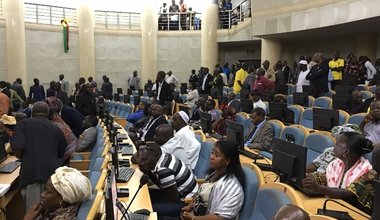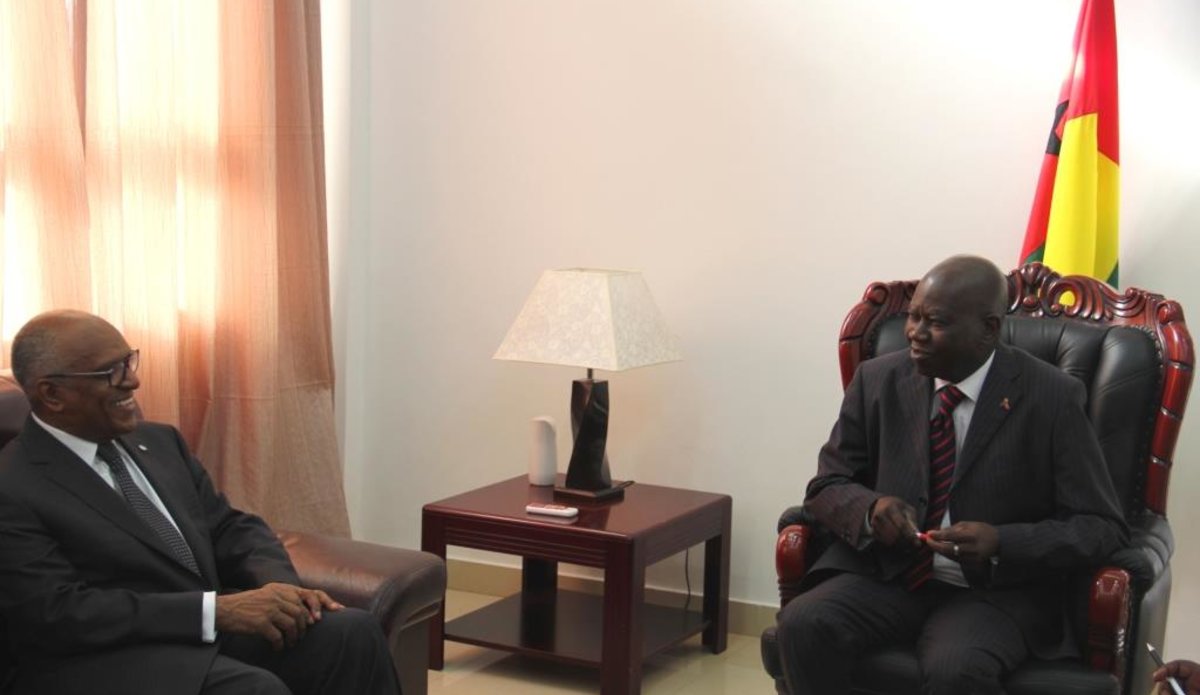Political crisis in Guinea-Bissau: UN Secretary-General's Representative continues mediation efforts
In an attempt to push through his government program in the National Popular Assembly for the second time on Monday, PAIGC expelled and requested the replacement of 15 of its MPs last Friday - whom had prevented the approval of the government program last 23 December. However, both the group of expelled MPs and their substitutes showed up today to participate in the plenary session.
The PRS bench challenged the legal grounds for suspension and replacement of those 15 MPs and decided to continue the plenary session, chaired by PRS leader Alberto Nambeia in his capacity of 2nd Vice-president of the Parliament.

Protests in parlament led to the suspention of the debate
A few hours earlier, the Special Representative of the UN Secretary-General, Miguel Trovoada, received the leader of the PAIGC, Domingos Simões Pereira, at his request. In recent days the SRSG resumed contacts with key Bissau-Guineans political leaders.
On the 14th, Miguel Trovoada analyzed the situation with President José Mário Vaz who assured him he was monitoring the situation. Addressing the media at the end of the meeting, the Head of the UN in the country said he told the President that the international community intends to remain committed to the people of Guinea-Bissau, "but there must be objective stability conditions so that these commitments can be honored."
The meeting with Prime Minister Carlos Correia on 15 January focused on the UN cooperation framework for 2016. At the end of the encounter, Miguel Trovoada expressed hope that the elected leaders do understand what is " best for the future of the country and the people's well-being, stressing that "he would continue contacts "with the entities, first with the organs of sovereignty, but also the political forces and civil society as usual, to analyze the current situation and see how we can contribute for a climate of peace and stability to take root in the country.”
The current political crisis is the sequence of the dismissal last August of Domingos Simões Pereira’s government by the President of the Republic.
 UN
UN





